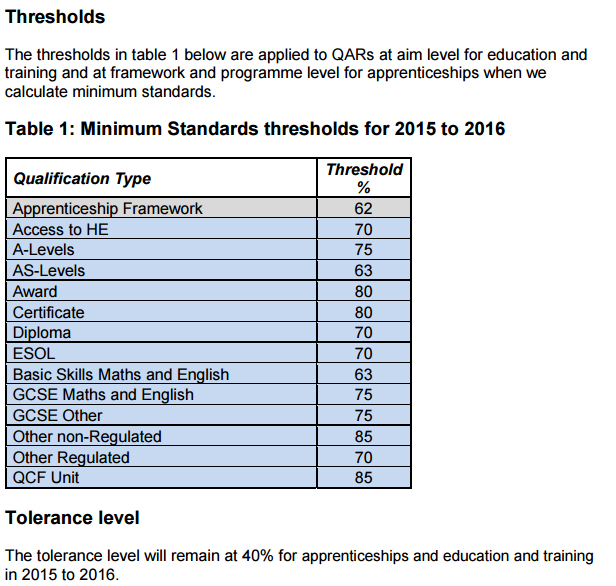The total value of bids lodged through the now-paused procurement for apprenticeship provision allocations for non-levy-paying employers was around £1.6 billion, almost four times more than the sum available, FE Week has learned.
The Education and Skills Funding Agency announced on April 12, that the decision over funding allocations relating to this procurement had been be paused, to allow more time for the situation to be reviewed.
Providers had been bidding for a share of a funding pot worth up to £440 million. But FE Week has now learned that interest in this funding stream appeared to be much higher than the government had anticipated, with actual bids amounting to around £1.6 billion.
The ESFA said, when it announced the pause, that “this procurement was markedly oversubscribed, a sign of the significant level of interest from the training provider market in the apprenticeship reforms.”
“In response, ESFA intends to pause the current competition. This will allow us to review our approach to ensure that we achieve the right balance between stability of supply, and promoting competition and choice for employers.”
The ESFA confirmed at the time that it would extend existing contracts held by current providers, to help minimise resulting disruption.
It said: “In order to maintain stability in the system through the start of the next academic year, in the interim period we will extend existing contracts held by all current providers until the end of December 2017.
“To maintain our quality standards, current providers with extended contracts will be able to undertake new starts on those contracts provided they are on the new Register of Apprenticeship Training Providers.”
The government also announced at the time that it would notify providers of “specific arrangements shortly”, so that amended contracts are in place ahead of May 1.
FE Week asked the Department for Education and ESFA this morning, for clarification on when it would be providing the sector with any new guidance.
But a spokesperson said it could not at this time give a specific date, only that it would be published “shortly”.
The DfE, which had previously been due to release the non-levy paying procurement results on March 14, would also not confirm or deny the accuracy of the £1.6 billion figure.
A key area of extra guidance expected would relate to whether the EFSA will be delaying its planned rule changes towards subcontracting, and how the system will work in the interim.
The procurement pause left many of those who were applying for a contract for the first time frustrated, as reported in FE Week, with them claiming they now found themselves facing an uncertain future until further announcements are made.
FE Week estimates that as it stands over 400 main providers on RoATP (a third of the 1,303) will now not be able to directly deliver to over 98 per cent of the non-levy employers from May.
All main providers on RoATP without existing contracts, will be able to continue to subcontract with a lead provider to access the non-levy funding.
However, there has been no indication yet that the tighter subcontracting rules from May, whereby the lead provider must deliver some training for the employer, are being paused or delayed.
Reflecting wider concerns, when the announcement was made on April 12, FE Week reader Lee Morris also commented: “Does anyone know if non-levy employers will still have to make the 10 per cent contribution?”
This concern was reflected today by Mark Dawe, who warned this morning: “We need confirmation as soon as possible for the providers on the register that the co-investment rules will apply from May 1.”
The government announced last August that nearly all employers will only have to contribute 10 per cent to the cost of an apprenticeship from April 2017.
This meant the government would pay 90 per cent of the costs for 98 per cent of employers, those with annual wage bills below £3 million and thus not paying the levy.
Mr Dawe added today: “We believe that a pause in introducing the new subcontracting rules alongside the pause in the non-levy apprenticeship procurement does not involve a change in government policy and the ESFA can implement this by informing providers during the [general election] purdah period. Now is not the time to destabilize the provider supply base and good existing relationships between employers and providers.”
He spoke out amid sector concern that key apprenticeship reform announcements and other reforms could be disrupted and delayed, following the imposition of civil service purdah which FE Week understand will come into play from Friday.
This came after Prime Minister Theresa May announced today that she will call a snap election on June 8 this year, with resulting purdah limiting how the civil service announces politically sensitive matters until after the public ballot.










